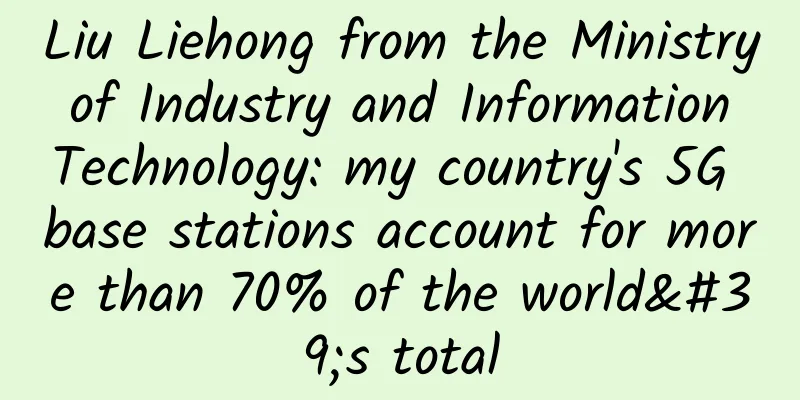Research shows: 5G will drive the development of the digital economy

|
How does 5G fit into this? As remote work, video conferencing, and digital collaboration become the new normal, consumers now demand reliable connectivity and more bandwidth. 5G wireless technology offers higher data speeds, ultra-low latency, massive network capacity, increased availability and reliability, and a more unified user experience for customers. So, as the world rapidly goes digital, 5G can provide a robust network and connectivity to help expand automation and be accessible anywhere in the world with minimal disruption.
5G enables digitalization Digital transformation not only caters to the current remote work scenario, but also helps companies move quickly when economic activities improve. The pandemic has forced many companies to adopt new technologies such as virtual reality, machine learning or the Internet of Things to keep their doors open and factories running with minimal manpower. The adoption of 5G can provide businesses with secure and reliable connectivity. If we look at individual industries, the relationship between digitalization and 5G becomes even clearer. In the medical industry, robotic surgery is no longer just an experiment, and IoT, AI, and 5G technologies together can enable robot-controlled surgery and remote analysis. 5G's unprecedented internet communications will help these advanced technologies run smoothly with minimal chance of error. The economic impact of 5G The 5G era is expected to bring unlimited connectivity, improve human life, enable automation, and transform industrial processes. In addition, it will play an important role in economic development. As telecommunications companies prepare for global 5G deployment, they are paving the way for huge infrastructure spending. According to a market research report, the global 5G infrastructure market was valued at US$1.99 billion in 2019 and is expected to reach US$41.96 billion by 2027, with a compound annual growth rate of 51.01%. Investments in 5G infrastructure will create demand for compatible smartphones, computers, and other devices. According to a study by IHS Markit, 5G will be fully operational around the world by 2035. This will help a wide range of industries such as retail, education, transportation, entertainment, etc. produce 5G products and services worth up to $13.2 trillion. Mobile phones will not only be used to connect people to people or people to information, but will also be used as a unified connectivity fabric that connects people to everything. This will help create 22.3 million jobs by 2035. Acquisitions and collaborations expand space In the race to take advantage of the 5G boom, some companies have been looking for smaller companies with the capabilities to support their 5G deployments. Microsoft, for example, has made major moves to gain traction in the 5G market. The company is working with telecom companies to help expand 5G deployments through its cloud-native framework and is leveraging its network acquisitions to develop 5G-based edge zones on its Azure cloud. On April 23, the tech giant acquired Affirm Networks for $1.35 billion, and then on July 15, Microsoft acquired Metaswitch Networks. While Affirm Networks gives Microsoft 5G core architecture capabilities, Metaswitch will enhance Microsoft's virtual network software portfolio. As 5G rolls out, several companies will take different approaches to technology adoption, entirely based on their business needs, with cloud infrastructure playing a vital role in this transformation. At present, the 5G era is coming to us. 5G will not only affect the mobile phone field, but also bring new changes to all walks of life. In the future, which industries will be affected by 5G? Let us wait and see. |
>>: The origin and development of Ethernet, you will understand after reading this!
Recommend
MIIT: 4G and 5G will coexist for a long time, and 5G will not be built to dismantle 4G or limit speed
On August 22, Wen Ku, Director of the Communicati...
Recommend a lightweight and fast file transfer tool for LAN
Project Introduction Fluxy is designed to provide...
A Brief Analysis of Bluetooth MESH Broadcasting
Labs Guide Bluetooth mesh technology is implement...
Enterprises need to increase investment in mobile 5G fixed fiber networks
As the world continues to go wireless, it’s also ...
Ten Limitations of MU-MIMO in WiFi
MIMO technology has continued to evolve since its...
Discussion on SD-WAN and IP Network Evolution
[[206217]] SD-WAN Today For most enterprises, IT ...
Talk: Application is slowed down? The culprit is Log4j!
[[338229]] Some time ago, we discovered that a Sa...
The benefits of modern networks for businesses
Enterprise adoption of software-defined and virtu...
Microsoft Build 2017: Officially released Visual Studio for Mac
On the evening of May 10th, Beijing time, Microso...
How to reduce the incidence of human error in data centers
Data center companies often encounter hardware an...
Gcore: KVM host from €1.08/month, 26 data centers available in Russia/Asia Pacific/Europe and America
G-core (gcorelabs) is a foreign hosting company f...
What exactly is semantic communication?
As we all know, since the outbreak of the informa...
What to do if the HTTPS certificate is forged?
The security of the HTTPS protocol relies on its ...
5G competition enters the second half, shifting from technology to application
At present, 5G is rapidly integrating into variou...
How to determine whether two IP addresses are in the same network segment? What is a subnet mask?
We have read many articles before about IP addres...









